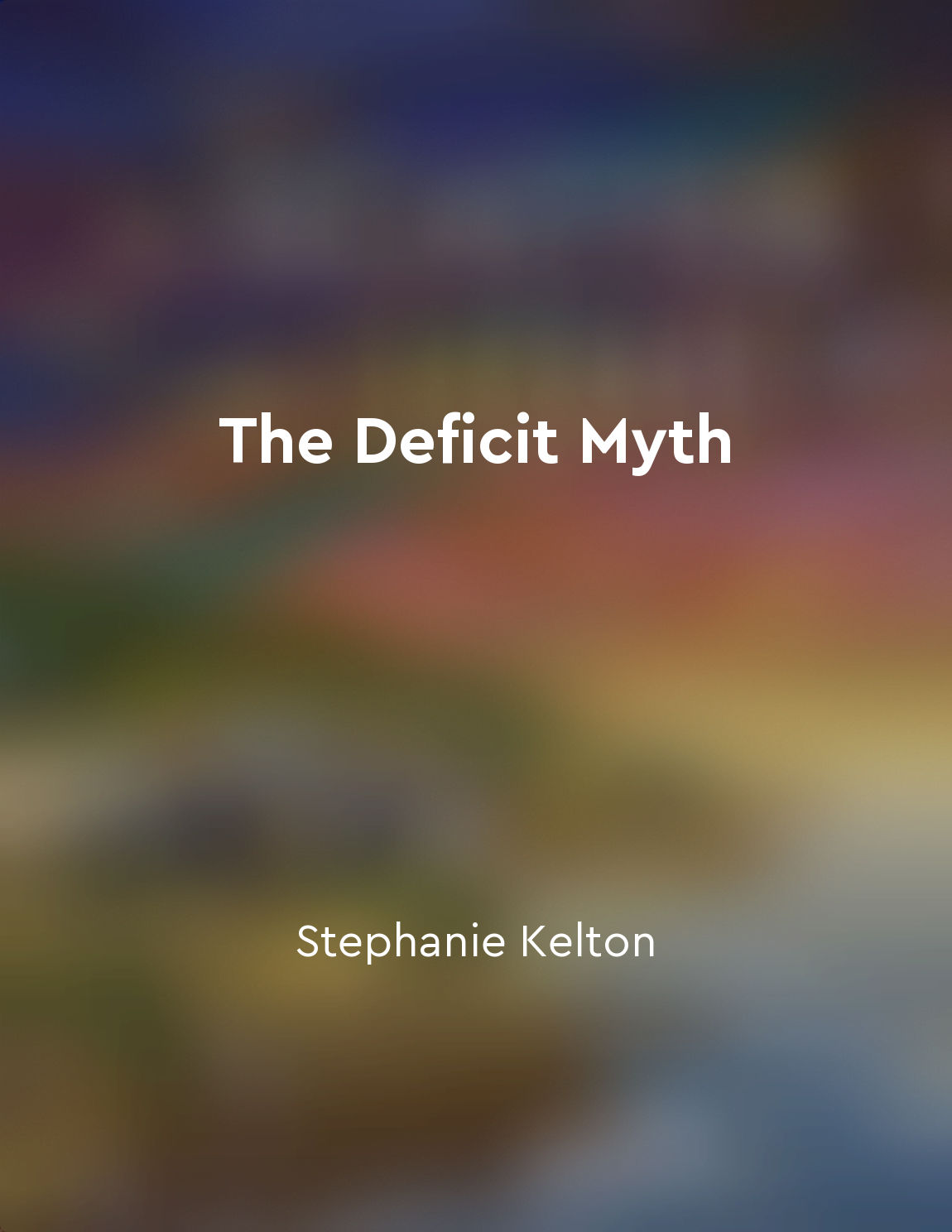Government spending is essential for economic growth from "summary" of The Deficit Myth by Stephanie Kelton
The idea that government spending is essential for economic growth may seem counterintuitive to some. After all, we are often told that the government needs to tighten its belt and reduce its spending in order to stimulate the economy. But this perspective overlooks a crucial point – when the government spends money, it creates income for someone else. This, in turn, enables that person to spend money, which then creates income for another person, and so on. This chain reaction is what drives economic growth. In her book, Stephanie Kelton explains that government spending is not like a household budget. Unlike a household, the government can never run out of money because it is the issuer of the currency. This means that the government can always afford to spend money into the economy, regardless of its current revenue. In fact, Kelton argues that government deficits are not inherently bad, as they can actually help to boost economic growth by injecting more money into the economy. Kelton challenges the conventional wisdom that deficits are always a sign of fiscal irresponsibility. She argues that deficits can be a powerful tool for achieving full employment and promoting economic stability. By increasing government spending during times of economic downturn, the government can create jobs and stimulate demand, which in turn leads to increased economic activity and growth. Furthermore, Kelton emphasizes that the real limit on government spending is not the deficit, but rather the availability of real resources such as labor, materials, and technology. As long as there are unused resources in the economy, the government can continue to spend money without causing inflation. In fact, Kelton argues that inflation is a much more pressing concern than government deficits, as it can erode the purchasing power of the currency and harm the economy.- Kelton's argument is a powerful reminder that government spending can be a force for good in the economy. By understanding the role that deficits play in driving economic growth, we can begin to rethink our approach to fiscal policy and embrace a new paradigm that prioritizes full employment and shared prosperity.
Similar Posts

Market participants include individuals, corporations, and governments
Market participants in financial markets encompass a wide array of entities, ranging from individual investors to large corpora...

Technological advancements impact business productivity
Technological advancements play a crucial role in shaping the productivity of businesses in today's fast-paced economy. As new ...

Strong families support economic success
The foundation of a thriving economy lies in the strength of its families. Families are the building blocks of society, providi...
Labor market dynamics influence growth outcomes
Labor market dynamics play a crucial role in shaping the growth outcomes of an economy. The availability of labor, its quality,...

The deficit myth is holding back progress
The idea that deficits are a hindrance to progress is a pervasive myth that has been ingrained in our society for far too long....
Governments must consider intertemporal budget constraints
The concept of intertemporal budget constraints is crucial for governments to consider when making fiscal decisions. This conce...
Business cycles impact global economic conditions
Business cycles are a fundamental aspect of the global economy, exerting a profound influence on economic conditions worldwide....
The impact of monetary policy on exchange rates is a key consideration for policymakers
Monetary policy plays a crucial role in influencing exchange rates, making it a significant factor for policymakers to consider...

